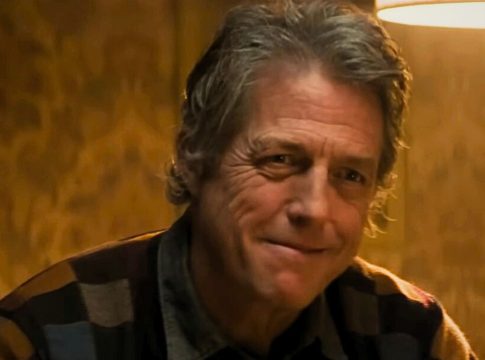The Haunting Finale of Heretic: A Cover Song that Echoes the Film’s Themes
If you think horror movies are all about jump scares and creepy soundtracks, think again! The 2024 film Heretic, directed by Scott Beck, dives deep into complex themes surrounding faith and the nature of belief. And while Hugh Grant’s character, Mr. Reed, may chill you to the bone, it’s the haunting end-credit song that perfectly ties the film’s intricate narrative together.
A Night with Mr. Reed
In Heretic, Grant portrays Mr. Reed, a seemingly amiable man who invites two young Mormon missionaries into his home for what they think will be a spiritual discussion. But as the plot unfolds, these women find themselves trapped, with their lives hanging in the balance. It’s a nail-biting premise that explores the thin line between faith and fanaticism.
Mr. Reed’s dialogues with the missionaries reveal his deep-seated belief that all religions are merely variations on a theme, lacking true substance. He’s been on a quest for the elusive “true” religion for years, convinced that the afterlife promises nothing but darkness. Dark, right?
The Final Song that Echoes Iteration
As if the chilling narrative wasn’t enough, the movie concludes with a cover of Bob Dylan’s "Knockin’ On Heaven’s Door," performed by none other than Sophie Thatcher, who plays Sister Barnes. This song isn’t just a catchy tune to close the credits; it’s a clever commentary on the film’s thematic ideas about iterations and the nature of art—much like Mr. Reed’s beliefs about religion.
Thatcher’s version weaves a dreamy, melancholic vibe reminiscent of Mazzy Star, which is a stark contrast to the original’s straightforward storytelling. But therein lies the brilliance; Mr. Reed espouses that even music is just an endless cycle of repackaged ideas, asserting that nothing is original.
Capturing the Theme
The song’s inclusion doesn’t merely serve as an auditory treat; it reinforces the film’s central thesis. Mr. Reed’s musings on musical influences, citing songs like Radiohead’s "Creep" and how it’s related to "The Air That I Breathe," make it clear: everything is just a remix of something that came before. In an ironic twist, Thatcher’s cover is the ultimate homage to that notion—a meta-commentary on the film’s exploration of authenticity.
As Thatcher elaborated in an interview, her rendition was a deliberate choice, aiming for a "melancholic and feminine" interpretation that added layers to the film’s closing moments. "It was almost an obvious choice," she said, pointing out the thematic parallels.
A Sinister Symphony
So what does it all mean? By ending with a song that embodies the very concept Mr. Reed preaches, Heretic closes the loop on its exploration of faith, death, and existential dread. Just as the film implies that organized religions are iterations of one another, the final song echoes this sentiment with haunting elegance.
With its robust storytelling and thought-provoking themes, Heretic is more than just horror; it’s a chilling examination of belief systems wrapped in a blanket of suspense. Buckle up, movie buffs—this is one film that’s sure to stick in your mind long after the credits roll.

Covers viral stories, pop culture, and breaking celebrity news.
Bio: Jamie has a sharp eye for what’s buzzing online, tracking social media trends and entertainment headlines around the clock.

